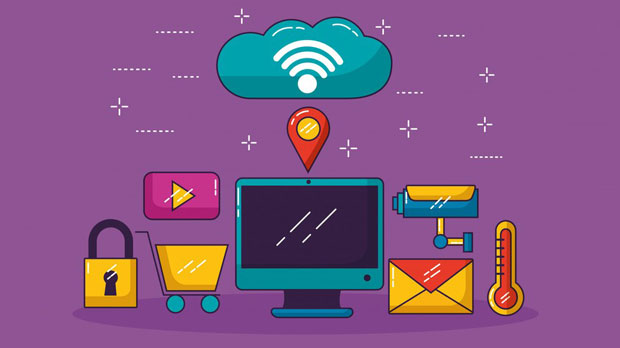In today's increasingly connected world, internet speed and seamless access to websites and services are paramount. For users relying on proxies to ensure security, privacy, or access to restricted content, configuring proxy settings correctly becomes essential for optimizing their browsing speed. PYPROXY, a popular proxy tool for Python developers, offers powerful proxy management capabilities. By understanding and optimizing the proxy settings, users can significantly enhance their browsing or data-scraping speed. This article will explore how to configure PyProxy proxy settings to maximize internet access speed, offering practical steps and in-depth analysis for improving proxy performance. Understanding PyProxy and Its Role in Optimizing Access SpeedBefore diving into optimization, it’s crucial to understand what PyProxy is and how it works. PyProxy acts as an interface between the user and the internet, routing web traffic through a proxy server to obscure the user's real IP address, access geo-restricted content, and enhance security. However, proxies, while beneficial for privacy and anonymity, can introduce latency and slow down the browsing speed due to additional routing. Therefore, optimizing PyProxy proxy settings can result in a more efficient and faster internet experience.Factors Affecting Proxy PerformanceSeveral factors influence the speed and performance of proxies, including server location, proxy type, network congestion, and the configuration settings. By understanding these factors, users can optimize their PyProxy proxy settings more effectively.1. Proxy Server Location: The physical location of the proxy server is a critical factor in determining the speed. The closer the proxy server is to the target server or the user’s geographical location, the faster the connection will be. Users should select proxies located near the target websites or services to reduce latency.2. Proxy Type: Different types of proxies—such as HTTP, HTTPS, SOCKS5—offer varying speeds and security levels. sock s5 proxies, for example, tend to provide better performance for data-heavy operations like web scraping, while HTTP proxies may be slower due to their additional processing steps. Understanding which proxy type suits your needs is essential for optimizing performance.3. Network Congestion: If a proxy server is handling too many users or requests simultaneously, the network will become congested, leading to slower access speeds. It's essential to choose a proxy provider with sufficient bandwidth and fewer simultaneous connections to avoid throttling.Optimizing PyProxy Proxy Settings for SpeedNow that we understand the key factors affecting proxy performance, let’s look at how to optimize PyProxy settings for improved access speed. Here are several steps and strategies that can help.1. Choose the Right Proxy Server: As mentioned, the location of the proxy server is one of the most important factors in optimizing speed. When configuring PyProxy, always ensure the selected server is geographically closer to your target website or service. This will reduce the time it takes for data to travel between the server and your device. PyProxy allows users to configure multiple proxy servers for load balancing, ensuring that the traffic is evenly distributed. Choose servers that are reliable and offer low ping times for optimal performance.2. Set Up Proxy Rotation: In scenarios like web scraping, where many requests are made to the same website, rotating proxies can be highly beneficial. Rotating proxies help to avoid IP blocks and reduce congestion on any single proxy server. PyProxy can automatically rotate between multiple proxies, ensuring smooth and continuous access to websites without slowing down. Proxy rotation reduces the chances of encountering bottlenecks, as each proxy will handle fewer requests, thereby maintaining faster speeds across the board.3. Use High-Quality Proxies: Not all proxies are created equal. Free proxies are often slower and unreliable, which can significantly hamper your browsing or scraping speed. To optimize PyProxy’s performance, invest in high-quality, premium proxies. These proxies typically offer faster speeds, better stability, and more reliable uptime. Premium proxies are generally less congested, have better routing paths, and provide lower latency, all of which contribute to faster access speeds.4. Optimize Timeout and Retry Settings: By default, PyProxy might have a standard timeout and retry setting for requests. However, in some cases, increasing the timeout duration or adjusting retry limits can improve access speed, especially in situations where the network connection is slow or unstable. Set the timeout slightly higher to accommodate slower responses from some proxy servers, but avoid setting it too high, as it can lead to unnecessary delays.5. Utilize DNS Settings for Faster Resolution: DNS (Domain Name System) resolution can be a potential bottleneck in the proxy setup. When using proxies, ensure that DNS queries are resolved quickly by using fast and reliable DNS servers. Some proxies support custom DNS settings, and configuring PyProxy to use these can result in faster domain resolution and, in turn, quicker access to websites. You can also use DNS caching to reduce repeated DNS lookups, speeding up subsequent requests to the same domains.Advanced Techniques for Further OptimizationFor users with more technical expertise, there are advanced techniques to further optimize the proxy setup.1. Configure Keep-Alive Connections: HTTP Keep-Alive allows the same TCP connection to be reused for multiple requests, reducing the overhead of opening new connections. By enabling Keep-Alive in PyProxy, users can ensure faster subsequent requests, as the connection remains open for re-use instead of being closed after each request. Ensure your proxy server supports persistent connections to fully utilize Keep-Alive. This method can significantly improve speed when making repeated requests to the same server.2. Limit Bandwidth Usage: In cases where you are managing your own proxy servers or using a dedicated proxy service, limiting the bandwidth per connection can ensure that no single connection overwhelms the network, which would cause delays. By distributing the available bandwidth evenly across connections, PyProxy can improve overall speed by preventing congestion on a single channel.3. Use Compression: Many proxy services, including PyProxy, support HTTP compression techniques like GZIP, which can reduce the size of the data transferred between the client and the server. Compression can decrease loading times, especially when accessing content like images or long web pages, by transmitting less data over the network. Enabling compression will reduce the strain on the proxy server and increase the speed of data transmission.Optimizing PyProxy proxy settings for speed involves a combination of proper server selection, proxy type configuration, and advanced techniques like rotating proxies, DNS optimization, and enabling Keep-Alive connections. By following these best practices, users can significantly reduce latency, enhance connection reliability, and speed up their internet access. Whether you're browsing the web securely or scraping data from websites, configuring PyProxy effectively is key to ensuring a fast and efficient experience.
Oct 17, 2025


































































